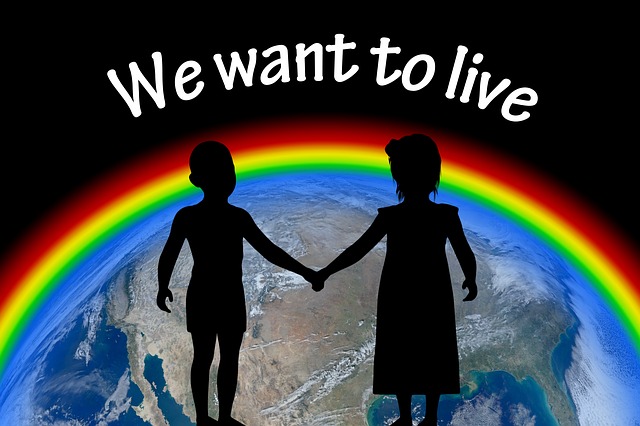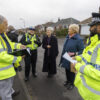Coronavirus News
Coronavirus Coronavirus: What’s happening around the world on Thursday
White House health experts are warning of a slow rise in the percentage of people testing positive for the coronavirus in U.S. cities such as Boston, Chicago, Detroit and Washington and urging local leaders to remain vigilant to avoid a surge.An Austin-Travis County medic loads a patient with COVID-19 symptoms into an ambulance in Texas.…
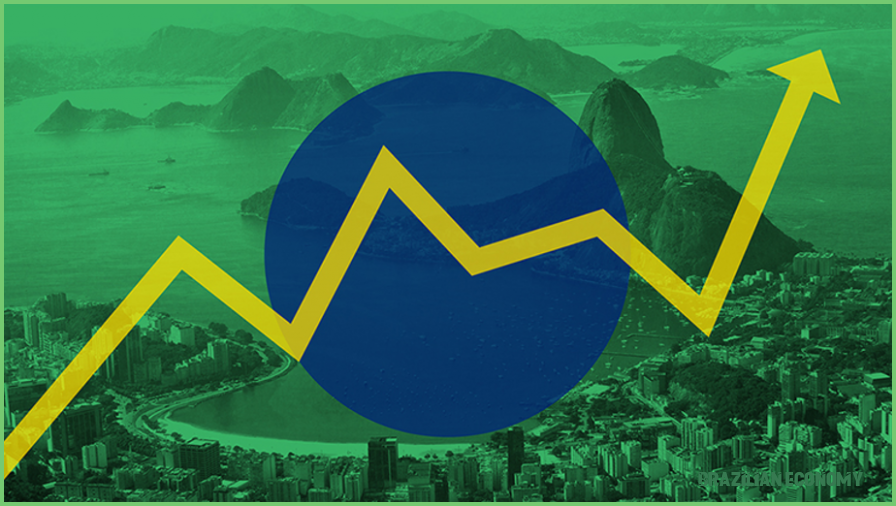
Coronavirus
White House health experts are warning of a slow rise in the percentage of people testing positive for the coronavirus in U.S. cities such as Boston, Chicago, Detroit and Washington and urging local leaders to remain vigilant to avoid a surge.

The latest:
- Ohio governor the latest senior elected U.S. official to test positive for coronavirus.
- Africa’s confirmed coronavirus cases near one million, with more than half in South Africa.
- Philippines overtakes neighbouring Indonesia as country with highest number coronavirus infections in the Far East.
- Mexico nears 50,000 confirmed deaths from coronavirus.
- Health Canada recalls more than 50 hand sanitizers.
- Blood donor study suggests 120,000 Quebecers have been infected with COVID-19.
- Another 1.2M Americans file for state jobless benefits after more generous federal program expires.
- North Korea escalates coronavirus response, but extent of outbreak is unclear.
White House health experts are warning of a slow rise in the percentage of people testing positive for the coronavirus in U.S. cities such as Boston, Chicago, Detroit and Washington and urging local leaders to remain vigilant to avoid a surge.
“This is a predictor of trouble ahead,” Dr. Anthony Fauci, director of the National Institute of Allergy and Infectious Diseases, told CNN on Thursday.
The U.S. death toll is now more than 159,000, with 4.8 million known cases, according to John Hopkins University. On average, 1,000 people are dying each day across the country from COVID-19.
Ohio Gov. Mike DeWine on Thursday became the latest senior elected U.S. official to test positive. He said he was tested as part of a safety protocol to greet U.S. President Donald Trump as he arrives in Cleveland to visit a factory.
Fauci was speaking after his White House coronavirus task force colleague, Dr. Deborah Birx, identified the new areas of concern in a telephone call with state and local officials on Wednesday, even as authorities see encouraging signs of daily infections decreasing across the South.
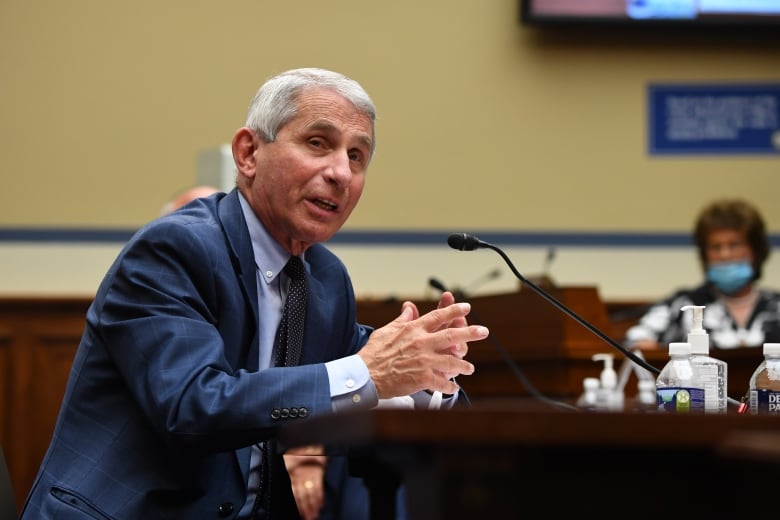
Baltimore and Atlanta remain at a “very high level,” as well as Kansas City, Portland, Omaha and the Central Valley in California, Birx said on the call, a recording of which was obtained by the journalism non-profit Center for Public Integrity.
White House data shows small increases in the percentage of positive COVID-19 tests in Chicago, Boston, Detroit and Washington. Those places need to “get on top of it,” Birx said.
Even in cities and states where most people are doing things right, Fauci said, people not wearing masks or following physical distancing guidelines remain vulnerable to infection and can keep the virus smouldering.
“Unless everybody pulls together … we’re going to continue to see these kind of increases that Dr. Birx was talking about in several of those cities,” Fauci said.
The epicentre of the U.S. outbreak initially focused on the highly populated area around New York City, the country’s largest, but has since spread to diverse communities from coast to coast, driven in part by summer vacation travel.
WATCH | What happens after a coronavirus vaccine is available?
An epidemiologist and infectious disease specialist answer questions about a COVID-19 vaccine, including what happens after a vaccine is approved and available in Canada. 4:54
Birx has been travelling around the United States talking to local and state officials in recent weeks, sending regular warnings not to relax until the coronavirus is under sufficient control.
Her message has often been in contrast to that of her boss, U.S. President Donald Trump, who as recently as Wednesday said the virus “will go away like things go away.”
A widely cited University of Washington model predicts U.S. deaths from COVID-19 will reach nearly 300,000 by Dec. 1. The Institute for Health Metrics and Evaluation model assumes that many states will impose new stay-at-home orders as deaths climb.
The Centers for Disease Control and Prevention monitors the model along with forecasts from about 30 other modelling groups. Combined, the models predict from 168,000 to 182,000 total COVID-19 deaths by Aug. 22.
Coronavirus What’s happening with coronavirus in Canada
As of 2:15 p.m. ET on Thursday, Canada had 118,447 confirmed and presumptive coronavirus cases. Provinces and territories listed 102,953 of those as recovered or resolved. A CBC News tally of deaths based on provincial reports, regional health information and CBC’s reporting stood at 9,001.
Health Canada is recalling more than 50 hand sanitizers that contain ingredients “not acceptable for use” that may pose health risks.
The agency says hand sanitizers with “unacceptable types” of ethanol or denaturants have not been approved for use in sanitizers in Canada, and their safety and efficacy have not been established.
- Health Canada recalls more than 50 hand sanitizers in evolving list
- Feds sign agreements with Pfizer, Moderna for millions of doses of coronavirus vaccines
- Blood donor study suggests more than 120,000 Quebecers have been infected with COVID-19
- Living with face masks: How to stow them, reuse disposables and more
Denaturants are ingredients added to ethanol to make it unfit for human consumption to avoid unintentional ingestion of hand sanitizers particularly by children.
Health Canada said possible reactions to the ingredients include skin irritation, eye irritation, upper respiratory system irritation and headaches.
Health Canada has an evolving list on its website of 51 hand sanitizers that are being recalled and says Canadians should consult the list regularly. The organization says to stop using products listed, and to consult a health-care professional “if you have used these products and have health concerns.”
Coronavirus Here’s what’s happening around the world
According to Johns Hopkins University, the global total of confirmed coronavirus cases was more than 18.89 million as of 2:15 p.m. ET on Thursday. More than 710,000 people have died, while 11.4 million have recovered. The U.S. and Brazil lead in case numbers, with a combined total of more than 7.7 million.
As Africa’s confirmed coronavirus cases near one million, the director of the Africa Centers for Disease Control and Prevention warns that “we cannot at all exercise fatigue” in the pandemic response.
John Nkengasong spoke to reporters as the continent’s cases are now at more than 992,000. More than half are in South Africa.

Africa has seen an 11 per cent increase in cases in the past week, lower than in recent weeks. But Nkengasong says that while it’s tempting to see a decrease, the numbers must be observed over several weeks to determine the real trend of infections on the continent of 1.3 billion people.
Five countries account for 75 per cent of cases: South Africa, Egypt, Nigeria, Ghana and Algeria. The low rate of testing remains a concern.
Thailand has delayed plans for a “travel bubble” agreement with select countries as new daily coronavirus cases rise in parts of Asia, putting pressure on its vital tourism industry and complicating efforts to revive its battered economy.
The country first proposed the idea in June to allow movement between select countries that have low infection numbers, without the need for travellers to undergo quarantine.
But that has been shelved, officials said, amid second and third waves in East Asian countries that previously had their outbreaks under control.

The Philippines on Thursday recorded another jump in coronavirus cases to overtake neighbouring Indonesia as the country with the highest number of confirmed COVID-19 infections in East Asia.
A recent surge in cases of the virus in and around the capital Manila has pushed President Rodrigo Duterte to impose a two-week lockdown in and around the city, affecting around a quarter of the country’s 107 million people.
The Philippines recorded 3,561 new infections on Thursday, taking its total confirmed cases to 119,460. That is higher than Indonesia’s 118,753 confirmed cases. The death toll rose by 28 to 2,150, which is less than half of Indonesia’s 5,521 fatalities, but is expected to grow after the recent spike in cases.

A health official says Vietnam’s COVID-19 outbreak could peak in the coming 10 days as the country reported another death and scores of new infections.
Deputy Health Minister Nguyen Truong Son, who is in hot spot Da Nang to oversee the fight against the virus, says new infections have been found every day and “therefore, we have to continue keeping [our] guard up.”
The governor of Japan’s Aichi Prefecture has announced a regional “state of emergency” seeking to curb the coronavirus.
Gov. Hideaki Ohmura on Thursday asked businesses to close altogether or close early and urged people to stay home at night.
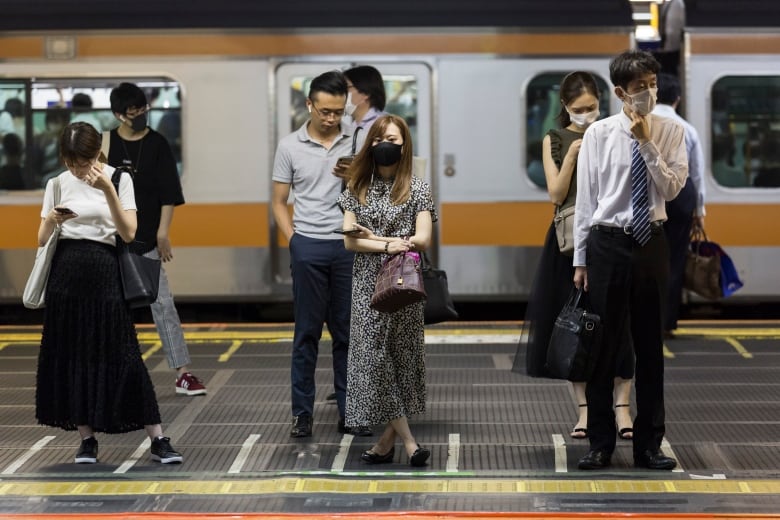
The governor says confirmed coronavirus cases have been rising in Aichi since mid-July at 100 or more a day. Before that, daily cases had been zero for extended periods.
India has recorded its biggest single day for fatalities with 904 in the past 24 hours as fresh coronavirus infections surged by another 56,282 cases to reach nearly two million.
The Health Ministry says the total fatalities reached 40,699. India has recorded 20,000 deaths in the past 30 days.
The ministry also said the recovery rate has improved to 67 per cent from 63 per cent over the last 14 days. Nearly 600,000 patients are still undergoing treatment.
WATCH | Ottawa orders millions of doses of coronavirus vaccine:
The federal government has signed deals with two major companies, Pfizer and Moderna, to secure doses of promising COVID-19 vaccine candidates, but is also keeping the door open to other potential providers. The government has not revealed how much it spent or how many doses have been ordered. 1:44
Germany’s national disease control centre has registered the highest number of new coronavirus infections in a day for three months.
The Robert Koch Institute says 1,045 cases were recorded on Wednesday. It was the first time since May 7 that it has counted more than 1,000 cases in a day. It’s still far short of early April’s peak of more than 6,000.
While daily numbers are volatile, the figure fits into a pattern of new cases edging higher over recent weeks as authorities deal with a number of small outbreaks in different parts of the country.
The British government says it won’t be using 50 million face masks it bought during a scramble to secure protective equipment for medics because of concerns they might not be safe.
The admission sparked calls from the political opposition for an urgent inquiry into the way contracts for essential supplies were handed out.
The masks were part of a £252-million ($440-million Cdn) contract the government signed with investment firm Ayanda Capital in April. Papers filed in a court case reveal that the masks won’t be distributed because they have ear loops rather than head loops and may not fit tightly enough.

Mexico is nearing 50,000 confirmed deaths from COVID-19.
The federal Health Department reported 829 newly confirmed deaths Wednesday, giving the country a total of 49,698 such deaths. That is the third-highest number of pandemic deaths in the world. Officials said Mexico’s number of confirmed infections rose by 6,139 to 449,961.
Authorities acknowledge Mexico’s real number of deaths could be much higher, in part because it has done so little testing. Only about one million tests have been performed in the country of almost 130 million people since the pandemic began.

Subscribe to the newsletter news
We hate SPAM and promise to keep your email address safe


